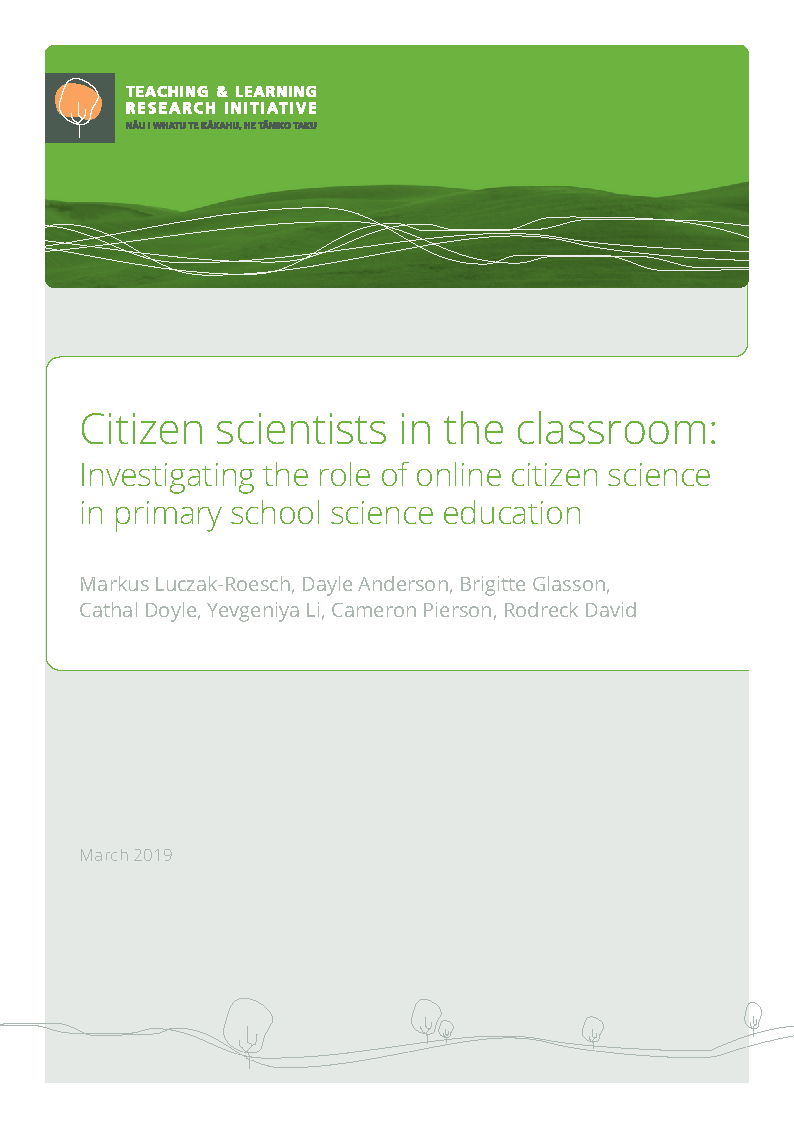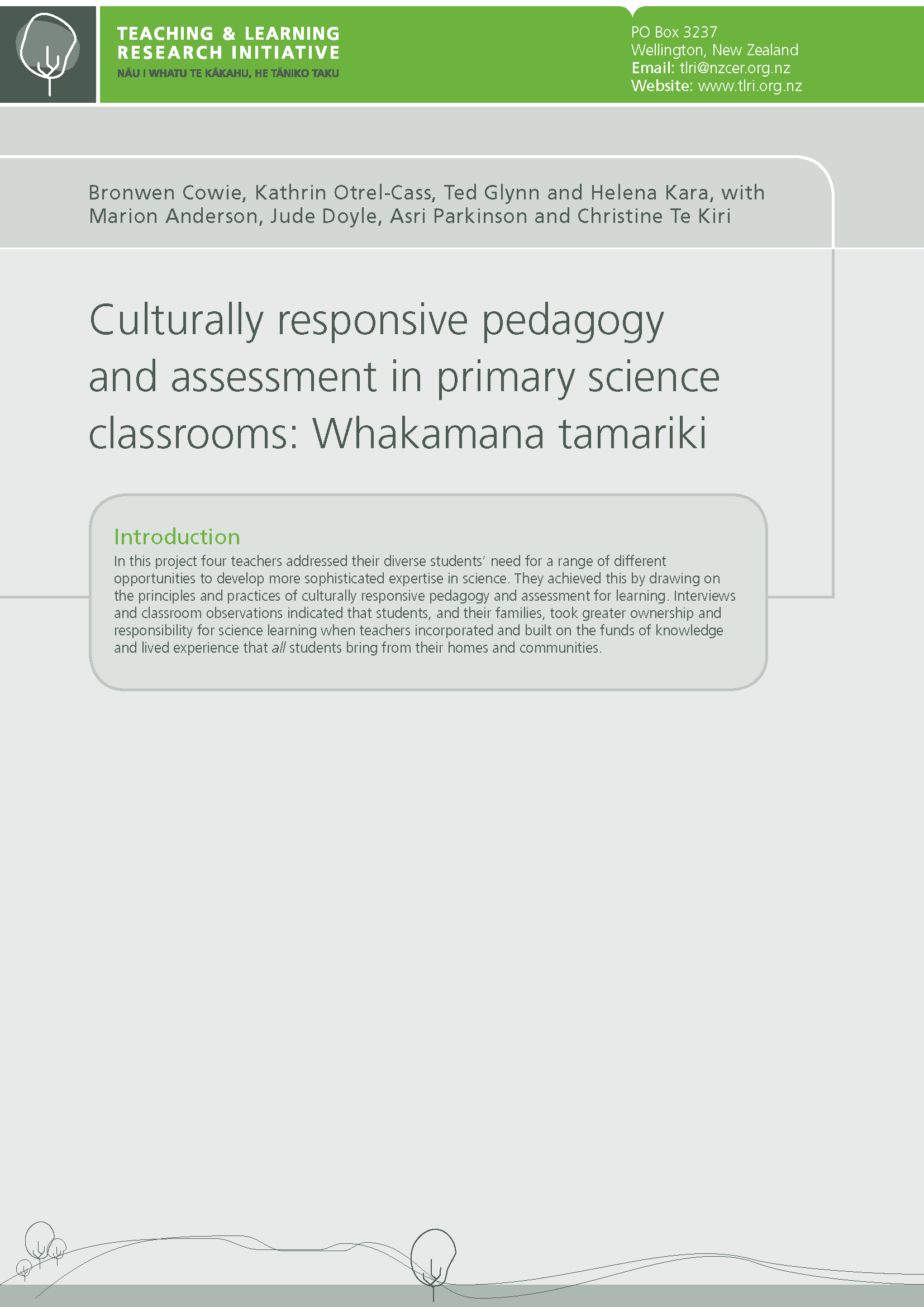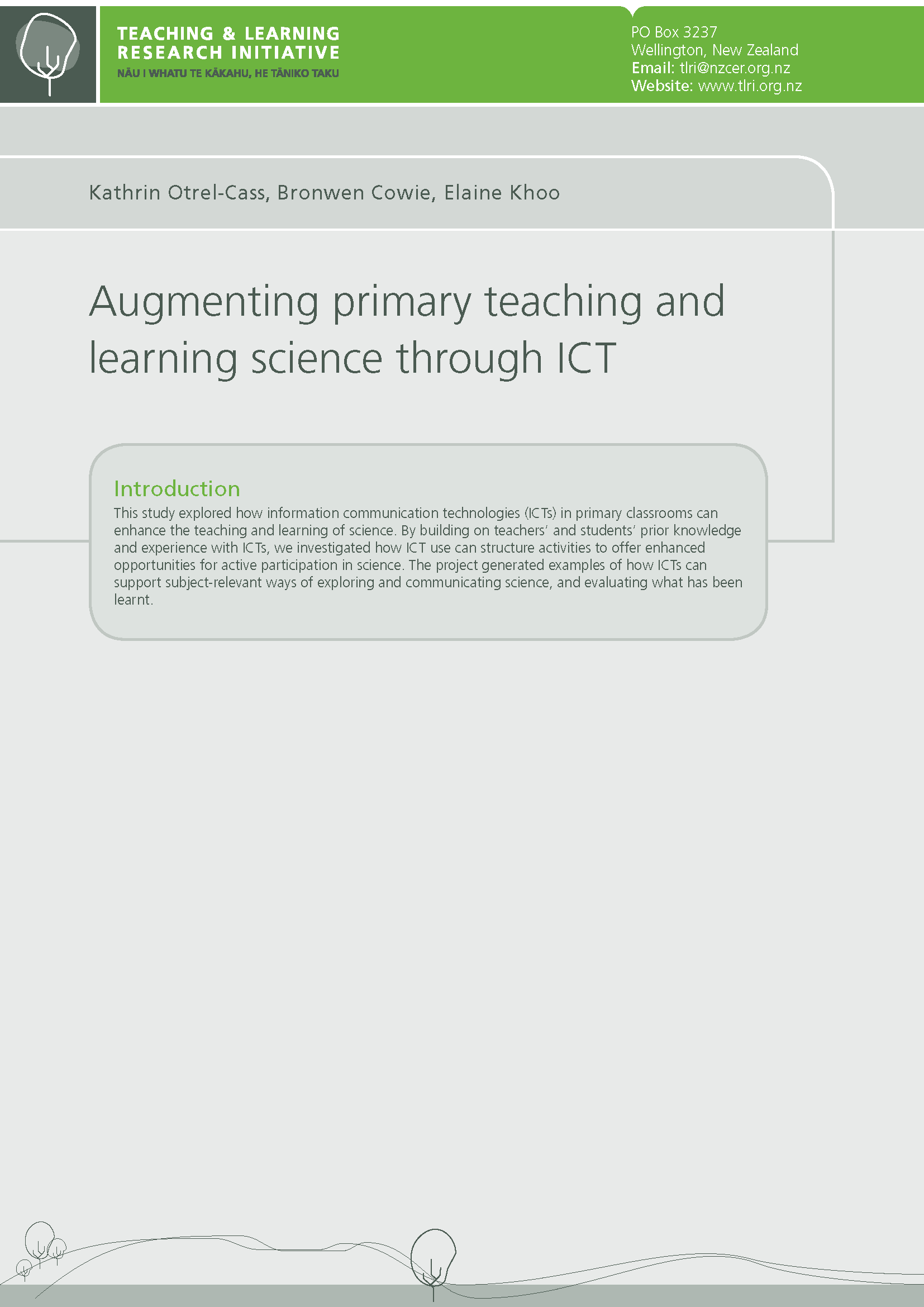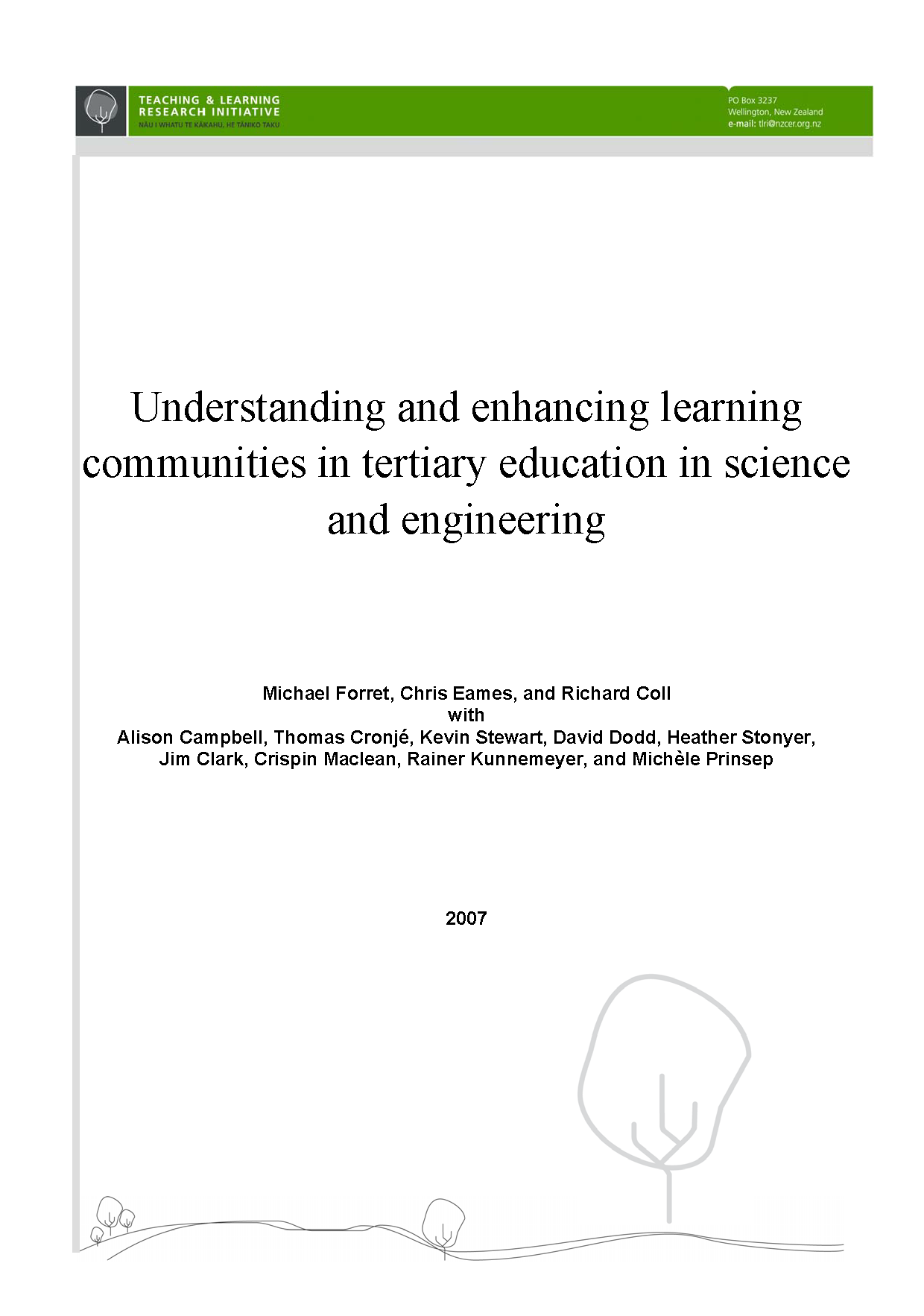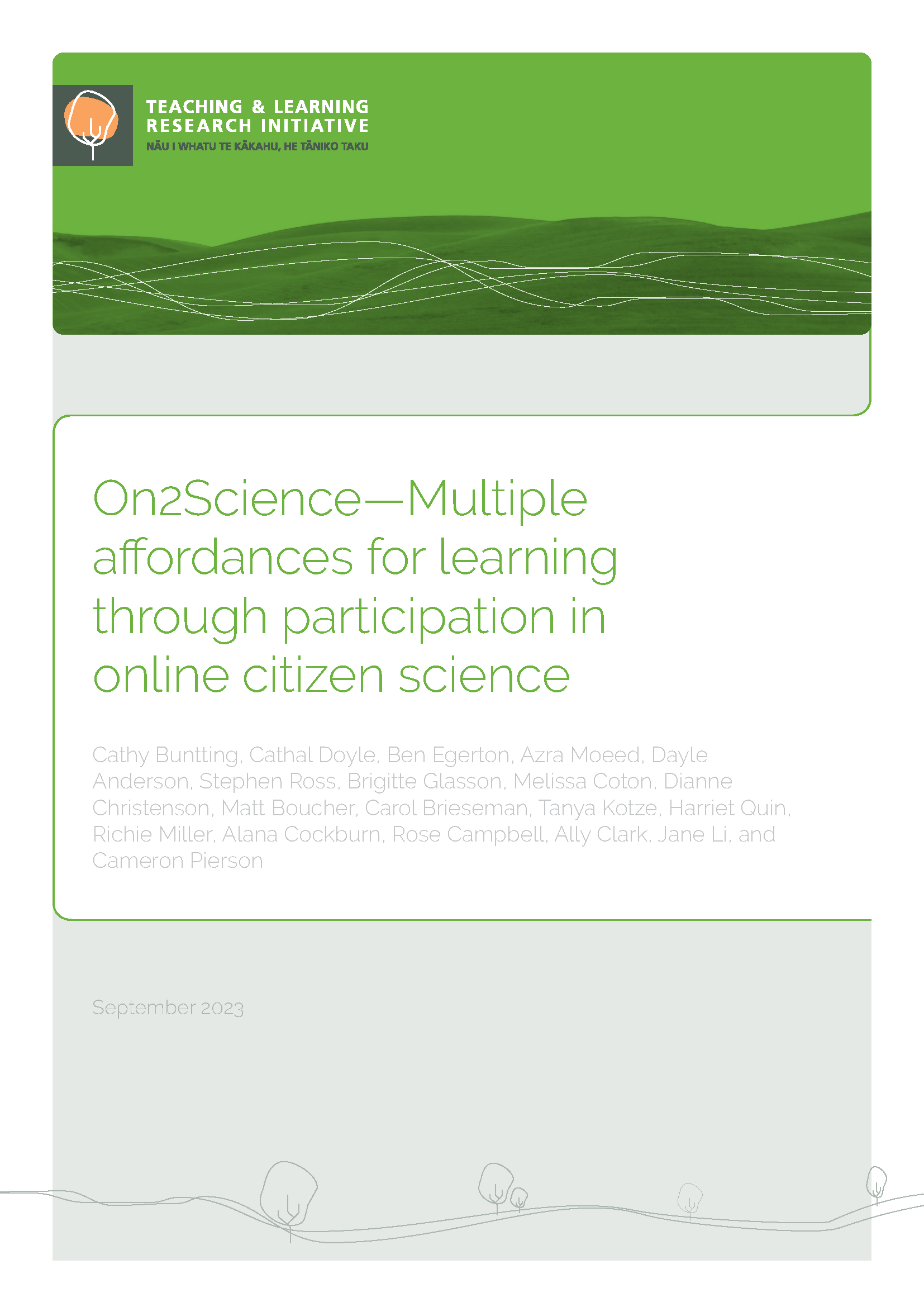
On2Science – Multiple affordances for learning through participation in online citizen science
Abstract This research investigated the integration of learning in science and digital technologies, with online citizen science (OCS) projects acting as the fulcrum for curriculum design. Across 3 years, teacher-researchers designed and implemented 16 innovative cross-curricular programmes. Our research focused on three areas: (1) mapping progressions in students’ science capabilities; (2) identifying affordances of OCS engagement for developing students’ digital technologies progress outcomes; and (3) investigating the impacts of teacher practices in relation to human–computer interactions. The project outcomes have potential to contribute significantly to both science and technology education research and teaching. 1. Introduction This research project brought together a team of education and information science researchers, teacher professional learning

